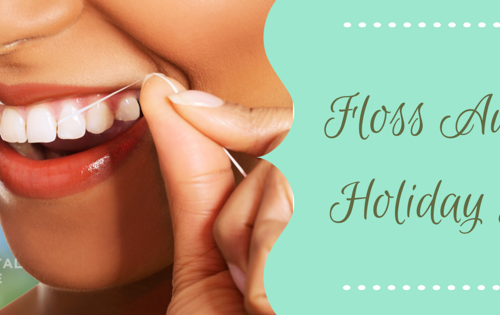Women’s Dental Health

Good dental hygiene is important for everyone’s oral health. It’s especially important for women, as natural hormonal changes throughout a woman’s life can make her more susceptible to various oral diseases.

Fluctuations in female hormones during key life events — puberty, menstruation, pregnancy, breast feeding, menopause — can cause swelling and changes to the gums. Oral contraceptives and hormone replacement therapies can also play a role in oral health.
And going the other way, gum disease and periodontal disease can cause complications during pregnancies.
General Guides for the Prevention of Tooth and Gum Disease
The goal of good oral hygiene is to prevent the buildup of plaque on the teeth and gums. Plaque is a thick, sticky film of bacteria that coats teeth and thrives on food particles. Plaque is a common cause of tooth decay and gum disease.
If left untreated, gum disease can advance to a stage called periodontitis. This is when the tissue around the base of the tooth starts to become inflamed, infected and compromised. If allowed to develop, the infection will even start to decay the jaw bone around the root of a tooth. This can result in the loss of the tooth, as well as a variety of other health problems such as heart disease.
Reducing Plaque Buildup
Brushing and flossing is the primary means of preventing plaque buildup. Teeth should be brushed twice a day for up to two minutes, and flossed once a day.
Bacteria loves sugar. Eating foods with lower sugar contents will limit the amount of food the bacteria in your mouth has access to. Rinse your mouth with water after sweet drinks or sports drinks.
Regular meals are better than constant snacking.
Chew sugarless gum after sugar and starch-heavy foods. This will stimulate saliva production which will help clear the teeth of plaque.
Lastly, have regular checkups with your dentist. Regular hygiene and cleaning visits will give you the best chance of spotting any potential problems early and maintaining optimum oral health.
Women’s Oral Health During…
Pregnancy
Dental checkups and routine visits are important during a pregnancy. X-ray films of your teeth should be taken before, and never during, a pregnancy.
Pregnancy Gingivitis
Rates of gum disease increase significantly in pregnant women due to the surge in female hormones. Many women find that their gums bleed more easily during brushing as their gums are now more sensitive to plaque. Pregnancy gingivitis generally begins around 12 weeks of pregnancy.
If pregnancy gingivitis occurs, see your dentist. A professional teeth cleaning will give you the best chance of maintaining proper oral health during the pregnancy.
Pregnancy Epulis
Epulis is swelling on the gums, and again becomes more common during pregnancy. It’s a benign, non-cancerous growth caused by inflammation. These don’t always need treatment, but your dentist may recommend removal if it interferes with eating, brushing, or flossing. These growths typically shrink once the pregnancy is over.
Damage from Stomach Acid
Nausea and vomiting can cause stomach acid to reflux into the mouth. This will damage the teeth as it erodes the enamel. Using a fluoride mouth rinse will help neutralise the acid and protect the teeth. If mouth rinse is unavailable, a thorough rinse with water will still help.
Check Wisdom Teeth Prior to Pregnancy
If you’re planning to get pregnant, see your dentist about your wisdom teeth if they haven’t already been removed or given the all-clear. If a wisdom tooth becomes impacted and infected during pregnancy, it can lead to severe consequences. It’s best to treat the tooth beforehand to prevent issues.
Puberty and Menstruation
Gingivitis is a common issue immediately prior to a period, again due to the surge of female hormones during this time. While the intensity of the symptoms will drop after the period is over, the gingivitis itself may still remain. It’s particularly important to pay attention to proper brushing and flossing at this time.
Menopause
While surges of female hormones can cause problems, the decline of female hormones will likewise make women more susceptible to a number of oral health concerns.
Pain, burning, and dryness of the mouth can all be common during menopause. Many women also experience bone loss at a more rapid rate during menopause. The typical concern with this bone loss is osteoporosis, which can result in more easily broken bones. But it can also mean that periodontal disease is more likely to cause a missing tooth than in a pre-menopausal woman.
The Effects of Medications on Oral Health
Birth Control
Oral contraceptives contain hormones that prevent the release of an egg. The higher levels of hormones created by the Pill can cause the same swelling and sensitivity as natural hormone cycles.
Unlike menstrual gingivitis, the symptoms of Pill-induced gingivitis can last the whole month the Pill is taken. It’s more likely for those that have been taking the Pill for many years.
Dry Socket
Women who take the Pill and have teeth extracted are twice as likely to develop a condition known as “dry socket”. This is when the blood clot that normally forms fails to do so or gets washed away. The underlying bone is then left exposed, resulting in throbbing pain for several days.
If you’re on the Pill and need a tooth extraction, notify the dentist.
Hormone Replacement Therapy (HRT)
Women who undergo HRT during menopause are likely to notice the same gum bleeding, swelling, and redness caused by the Pill. This is, again, caused by changing hormone levels.
When Should You Get Your Wisdom Teeth Removed? No Dental Care Issues? See Your Dentist StillLatest from the Dental Blog
 11 Oct 2017
11 Oct 2017
Veneers, Teeth Whitening, Composite Fillings, Inlays and Onlays
There are many reasons our teeth can change in appearance over our life. Sometimes it’s an inherited trait, such as…
 02 Sep 2016
02 Sep 2016
How To Help Your Child Love The Dentist!
How To Prepare Your Child For Their First Visit You may have wondered when to bring your child to see…
 20 Nov 2017
20 Nov 2017
Women’s Dental Health
Good dental hygiene is important for everyone’s oral health. It’s especially important for women, as natural hormonal changes throughout a…
